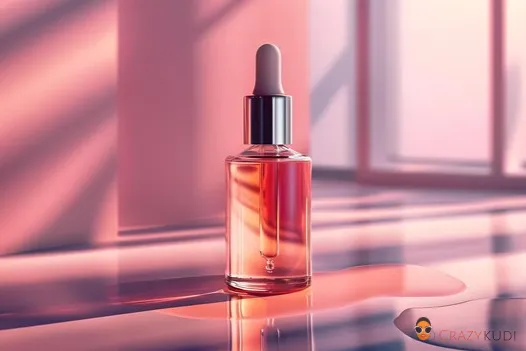In the ever-evolving world of skincare, few ingredients have garnered as much attention and praise as hyaluronic acid. This powerful moisture-binding molecule has become a staple in beauty routines worldwide, and for good reason. If you're looking for that dewy, plump complexion that seems to defy aging, understanding hyaluronic acid and incorporating a quality hyaluronic acid serum into your regimen might be the game-changer you've been searching for.
What Is Hyaluronic Acid?
Despite its intimidating name, hyaluronic acid is actually a naturally occurring substance in our bodies. It's a clear, gel-like molecule that's primarily found in our skin, connective tissues, and eyes. What makes hyaluronic acid so special is its remarkable ability to retain moisture—it can hold up to 1,000 times its weight in water!
As we age, our body's natural production of hyaluronic acid decreases, which contributes to dry skin and the formation of wrinkles. This is where topical hyaluronic acid serums come into play, helping to replenish moisture levels and restore that youthful bounce to our skin.
The Benefits of Hyaluronic Acid for Your Skin
Hyaluronic acid offers numerous benefits that make it worth incorporating into your beauty routine:
1. Intense Hydration
The primary benefit of hyaluronic acid is its unparalleled ability to hydrate the skin. When applied topically, a hyaluronic acid serum draws moisture from the environment and locks it into your skin, creating a reservoir of hydration that keeps your complexion looking dewy and fresh throughout the day.
2. Reduces Fine Lines and Wrinkles
By boosting skin hydration, hyaluronic acid helps to plump up the skin, temporarily filling in fine lines and wrinkles. Regular use of a hyaluronic acid serum for skin can contribute to a smoother, more youthful appearance over time.
3. Improves Skin Texture and Elasticity
Well-hydrated skin is more resilient and elastic. Hyaluronic acid helps strengthen the skin's natural barrier, improving overall texture and creating a smoother canvas for makeup application.
4. Suitable for All Skin Types
One of the most remarkable aspects of hyaluronic acid is its universality. Unlike some active ingredients that can cause irritation or adverse reactions, hyaluronic acid is gentle and suitable for all skin types—even the most sensitive. It's non-comedogenic, meaning it won't clog pores, making it safe for those with acne-prone skin as well.
5. Plays Well with Other Ingredients
Hyaluronic acid is a team player in your skincare routine. It complements rather than competes with other active ingredients like vitamin C, retinol, and niacinamide, enhancing their effectiveness by ensuring your skin is properly hydrated.

How to Choose the Right Hyaluronic Acid Serum for Your Skin
With countless options available in the market, selecting the perfect hyaluronic acid serum can feel overwhelming. Here's what to look for:
Different Molecular Weights
Not all hyaluronic acid formulations are created equal. Look for products that contain multiple molecular weights of hyaluronic acid. Lower molecular weight formulations can penetrate deeper into the skin, while higher weights provide surface hydration.
Concentration
The concentration of hyaluronic acid in a product matters. A concentration of 1-2% is typically effective without causing irritation. Some products may advertise higher percentages, but more isn't always better—proper formulation is key.
Additional Ingredients
Many hyaluronic acid serums are enhanced with complementary ingredients like vitamin B5 (panthenol), glycerin, ceramides, or peptides. These can boost the overall effectiveness of the serum and provide additional skin benefits.
Packaging
Hyaluronic acid can degrade when exposed to air and light. Opt for products in opaque, airless pump containers to ensure stability and efficacy throughout use.
Also read: Your Guide to Oil Control: The Best Face Serums for Oily Skin
How to Incorporate Hyaluronic Acid Serum into Your Skincare Routine
For maximum benefits, follow these steps when using a hyaluronic acid serum:
- Apply to damp skin: Hyaluronic acid works by drawing moisture into the skin. Applying it to slightly damp skin gives it water molecules to attract, enhancing its effectiveness.
- Layer properly: In a typical skincare routine, apply hyaluronic acid serum after cleansing and toning but before heavier products like moisturizers and oils.
- Seal it in: Follow your hyaluronic acid serum with a moisturizer to lock in the hydration. This prevents the moisture from evaporating, especially in dry environments.
- Use twice daily: For optimal results, incorporate hyaluronic acid into both your morning and evening skincare routines.
- Be consistent: Like most skincare ingredients, hyaluronic acid works best when used consistently over time.
Beyond Facial Skincare: Other Uses for Hyaluronic Acid
While hyaluronic acid serums are primarily associated with facial skincare, the benefits of hyaluronic acid extend beyond just your face:
Body Care
Hyaluronic acid can be found in body lotions and creams, providing the same hydrating benefits to dry areas like elbows, knees, and heels.
Hair Care
Some hair products now incorporate hyaluronic acid to add moisture and volume to dry, damaged hair.
Joint Health
In addition to topical applications, hyaluronic acid is also available as oral supplements and injections for joint health, helping to lubricate joints and reduce pain associated with conditions like osteoarthritis.

The Science Behind Hyaluronic Acid
For those interested in the technical aspects, hyaluronic acid (HA) is a glycosaminoglycan, a type of polysaccharide that occurs naturally in the connective tissues of the body. In the skin, it's found in both the deep dermis and the upper layers of the epidermis.
Clinical studies have demonstrated that topical application of hyaluronic acid can significantly improve skin hydration and elasticity while reducing the appearance of wrinkles. The effectiveness of hyaluronic acid serum for skin has been documented in numerous peer-reviewed journals, confirming what beauty enthusiasts have experienced firsthand.
Common Myths About Hyaluronic Acid
Despite its popularity, there are some misconceptions about hyaluronic acid that deserve clarification:
Myth: Hyaluronic Acid Exfoliates the Skin
Unlike alpha and beta hydroxy acids, hyaluronic acid is not an exfoliant. It's a hydrator that doesn't remove dead skin cells or cause peeling.
Myth: More Is Always Better
Using multiple hyaluronic acid products or applying excessive amounts won't necessarily yield better results. A well-formulated serum used correctly is sufficient.
Myth: It Can Replace Moisturizer
While hyaluronic acid provides hydration, most people still need a moisturizer to seal in that hydration and provide additional nourishment.
Also read: Face Serum for Dry Skin: A Complete Guide
The Bottom Line on Hyaluronic Acid
Hyaluronic acid has earned its place as a skincare superstar thanks to its remarkable hydrating properties and compatibility with virtually all skin types and conditions. Whether you're battling dryness, fine lines, or simply want to maintain a healthy glow, incorporating a quality hyaluronic acid serum into your routine can deliver visible improvements to your skin's appearance and feel.
Remember that consistent use is key to seeing results, and combining hyaluronic acid with other beneficial skincare practices—such as proper cleansing, sun protection, and a healthy lifestyle—will help you achieve the best possible complexion.
As with any skincare ingredient, individual results may vary, but the moisturizing magic of hyaluronic acid makes it a worthy addition to almost any beauty regimen. Your skin's natural moisture barrier will thank you!
This article is for informational purposes only and does not constitute medical advice. Always consult with a dermatologist or healthcare provider for personalized skincare recommendations.

